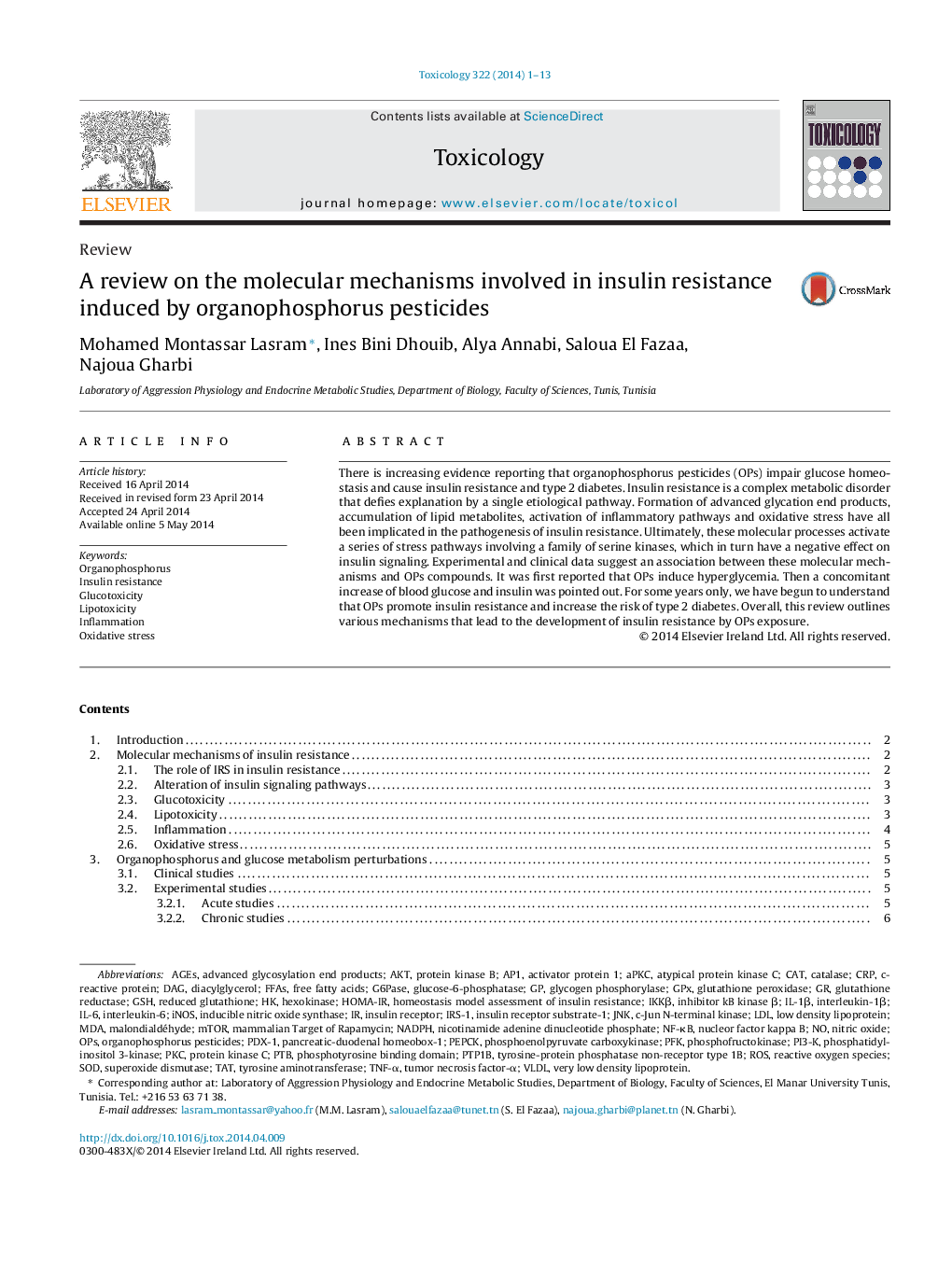| Article ID | Journal | Published Year | Pages | File Type |
|---|---|---|---|---|
| 2595538 | Toxicology | 2014 | 13 Pages |
•Organophosphorus exposure leads to onset and progression of the early steps of type 2 diabetes by the induction of insulin resistance.•Insulin resistance is initiated and promoted by glucotoxicity, lipotoxicity, inflammation and oxidative stress.•Insulin resistance state is induced by the inhibitory phosphorylation of IRS by a series of serine kinases such as JNK, IKKβ, and PKCθ.•Organophosphorus pesticides activate the serine kinases by the induction of hyperglycemia, dyslipidemia, cytokines and reactive oxygen species, leading to insulin resistance.
There is increasing evidence reporting that organophosphorus pesticides (OPs) impair glucose homeostasis and cause insulin resistance and type 2 diabetes. Insulin resistance is a complex metabolic disorder that defies explanation by a single etiological pathway. Formation of advanced glycation end products, accumulation of lipid metabolites, activation of inflammatory pathways and oxidative stress have all been implicated in the pathogenesis of insulin resistance. Ultimately, these molecular processes activate a series of stress pathways involving a family of serine kinases, which in turn have a negative effect on insulin signaling. Experimental and clinical data suggest an association between these molecular mechanisms and OPs compounds. It was first reported that OPs induce hyperglycemia. Then a concomitant increase of blood glucose and insulin was pointed out. For some years only, we have begun to understand that OPs promote insulin resistance and increase the risk of type 2 diabetes. Overall, this review outlines various mechanisms that lead to the development of insulin resistance by OPs exposure.
Graphical abstractFigure optionsDownload full-size imageDownload as PowerPoint slide
